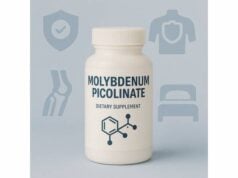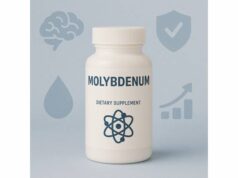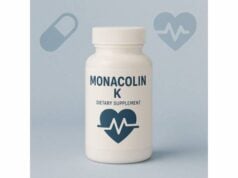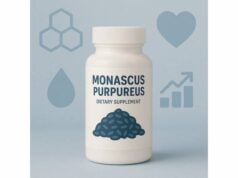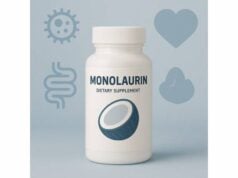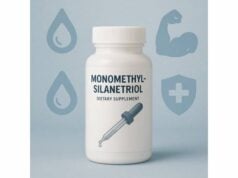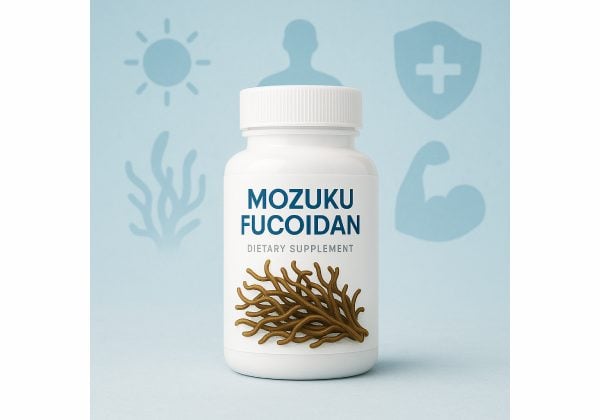
Mozuku fucoidan is a sulfated polysaccharide concentrated in Okinawan mozuku (Cladosiphon okamuranus), a brown seaweed valued in Japanese cuisine. Interest in this compound has grown because laboratory and early clinical findings suggest roles in immune modulation, gut integrity, and support during antibiotic or chemotherapy regimens. Still, fucoidan is not a cure-all: its effects depend on molecular weight, dose, and product quality, and most human trials are small. If you are curious about adding mozuku fucoidan to your routine, the most practical steps are understanding what it is, what outcomes the research actually measures (such as natural killer cell activity, stool changes, and microbial balance), how much people typically take, and when to avoid it—especially with blood thinners or during pregnancy. This guide translates the science into plain language, flags realistic expectations, and shows you how to choose and use fucoidan safely and effectively.
Key Insights
- May support immune function (for example, natural killer cell activity) and help maintain gut balance during therapy.
- Early studies suggest benefits for gastrointestinal comfort and microbial stability; strong disease claims are not established.
- Typical adult intake: 300 mg–3,000 mg per day; research examples include 1,620 mg/day beverages and 3,000 mg/day powders.
- Avoid with anticoagulants or bleeding disorders; stop before surgery and during pregnancy.
- Do not self-treat serious conditions; use fucoidan only as an adjunct within a broader care plan.
Table of Contents
- What is mozuku fucoidan?
- Does fucoidan from mozuku work?
- How to take mozuku fucoidan
- What changes your results
- Common mistakes and fixes
- Safety: who should avoid it
- Evidence in plain English
What is mozuku fucoidan?
Mozuku fucoidan is a complex carbohydrate found in the cell walls of Okinawan mozuku (Cladosiphon okamuranus). Chemically, it is a fucose-rich, sulfated polysaccharide: long chains of sugar units with sulfate groups attached. These sulfate groups, along with branching patterns and molecular weight (size), shape how fucoidan behaves in the body—its solubility, interaction with proteins, and biological activity.
Fucoidan is not a single, standard molecule. Natural variability is the rule: harvest season, habitat, processing, and extraction conditions all influence its structure. Two features matter most:
- Molecular weight (MW). You’ll see terms like high molecular weight (HMW; often tens to hundreds of kilodaltons) and low molecular weight (LMW; often under 10 kDa). HMW tends to remain in the gut, acting locally on the mucosal environment and immune cells, while LMW or oligosaccharide fragments may be absorbed to a greater extent and circulate systemically. Practical takeaway: product labels that disclose MW help you match expectations to likely behavior.
- Degree of sulfation and composition. The number and placement of sulfate groups and the presence of co-monomers (e.g., glucuronic acid) influence affinity for proteins (like growth factors and selectins) and can alter antioxidant, anticoagulant, and immunologic properties.
Absorption and fate. Oral fucoidan is only partly absorbed. Human studies show that after a single 3 g dose, a measurable fraction appears in urine within hours, confirming some systemic uptake, while most remains in the gut lumen. This dual presence supports two plausible action pathways: local effects in the gastrointestinal tract (such as anti-adhesive or prebiotic-like actions) and modest systemic signaling.
Mozuku vs. other seaweeds. Fucoidan also occurs in wakame (Undaria), kombu (Saccharina/Laminaria), and others, but composition differs by species. Mozuku fucoidan is prized for relatively consistent harvests in Okinawa and a well-characterized food history. When comparing studies or supplements, check the species: results from non-mozuku sources may not translate directly.
What it is not. Fucoidan is not iodine. Seaweeds can contain iodine, but purified fucoidan extracts typically have much less iodine than whole-seaweed foods. Good manufacturers test and disclose heavy metals and iodine levels. It’s also not a fiber supplement in the conventional sense, though, like other non-digestible polysaccharides, it can influence stool characteristics and fermentation patterns.
Why people take it. The most common goals are immune support (especially around seasons of frequent respiratory infections or vaccine periods), gut comfort and microbial balance during antibiotic courses, and supportive care alongside conventional therapies (e.g., to help with tolerance). These uses reflect the modest, system-supportive actions observed in early human trials rather than disease-level treatment effects.
Does fucoidan from mozuku work?
The fairest answer is: it shows promise for specific supportive outcomes, but the evidence base is still developing and concentrated in small trials. Here is what human studies have explored so far and what those results practically mean.
Immune function (natural killer activity). Randomized, double-blind trials using Okinawa mozuku fucoidan beverages (for example, 3.0 g/day over 8–12 weeks) have demonstrated increases in natural killer (NK) cell activity, particularly in male participants. NK cells are part of innate immunity and contribute to early defense against virally infected and malignant cells. What to expect: changes are measured in laboratory assays—people generally report feeling “no different,” which is normal; the value here is immune readiness, not a stimulant sensation.
Gastrointestinal comfort and microbial balance. Open-label randomized work adding fucoidan to Helicobacter pylori eradication therapy suggests a protective effect on gut microbial diversity and composition during and after antibiotics, with fewer shifts toward potentially problematic genera. Separately, a real-world clinical report of a fucoidan drink in people with H. pylori infection found reductions in breath-test measures and gastric load over 4–8 weeks. Take these findings as early signals: they point to anti-adhesive and mucosal support properties rather than definitive infection cures, and standard eradication regimens remain first-line.
Metabolic outcomes and stool patterns. In adults with type 2 diabetes managed by diet therapy, a double-blind, placebo-controlled crossover trial of high-molecular-weight mozuku fucoidan (1,620 mg/day beverage for 12 weeks) reported increased stool frequency and improved taste sensitivity, with small glycemic changes in a subgroup with relatively normal insulin resistance. Practically, this aligns with a gentle “functional fiber-like” effect in the gut and emphasizes that clinically meaningful glucose changes should not be expected for everyone.
Oncology support (adjunctive use). Low-molecular-weight fucoidan from various brown seaweeds has been studied as a complementary agent with chemotherapy. Some trials suggest better tolerance or disease control rates, but results vary by source, molecular weight, regimen, and cancer type. For mozuku-specific products, most clinical work still targets immune metrics, comfort outcomes, or exploratory endpoints rather than survival endpoints. If you are in active treatment, decisions about fucoidan must be made with your oncology team to avoid conflicts with protocols.
What to be skeptical about. Claims that fucoidan “treats” cancer, eradicates chronic infections by itself, or “boosts” immunity in a dramatic way are not supported by high-quality, replicated trials. Benefits, when observed, are usually modest, supportive, and context-dependent. Expect incremental improvements in lab markers or symptom trajectories, not disease cures.
Bottom line. Mozuku fucoidan appears most useful as a supportive adjunct—for immune tone and gut steadiness—particularly during stressors such as antibiotic courses or seasonal viral waves. It is not a replacement for prescribed therapies. Effects typically accrue over weeks of consistent use and are better viewed as “nudges” to system balance rather than direct, rapid symptom relief.
How to take mozuku fucoidan
Forms you will see
- Beverages/liquid shots. Many clinical protocols used beverages delivering 1,620 mg/day or 3,000 mg/day of fucoidan. Liquids are easy to absorb and allow straightforward titration.
- Capsules or powders. These typically provide 300–1,000 mg per capsule and are convenient for split dosing.
- Oligosaccharide or “LMW” versions. These contain smaller fragments (often <10 kDa). They may be better absorbed and are sometimes marketed for systemic targets.
- HMW extracts. Closer to the native polysaccharide; more likely to act locally in the gut.
Typical adult dosage ranges
- Everyday support: 300–1,000 mg/day, in one or two divided doses.
- Research-aligned intakes: 1,620 mg/day (beverage) or 3,000 mg/day (powder or beverage), usually for 8–12 weeks.
- Adjunct during antibiotic courses: 1,000–3,000 mg/day for the duration of therapy and several weeks after, based on study designs that aimed to stabilize gut ecology.
Start at the low end for 3–5 days, then increase within the chosen range if well tolerated. For liquid forms, you can split morning/evening. If you notice mild loose stools, reduce your dose or take with a small snack.
With or without food? Most people take fucoidan with meals to minimize stomach upset and to pair it with other fat-soluble nutrients from the diet. If you use a beverage shot, breakfast or lunch works well.
How long until you notice anything? Expect subtle changes—often none that you can feel. In trials, measurable effects (NK cell assays, stool frequency, breath tests, sequencing data) typically appeared at 8–12 weeks. Use a calendar or journal to track sleep quality, bowel regularity, and overall energy; this helps you judge whether the supplement fits your goals.
Quality checklist when choosing a product
- Species: labeled as Cladosiphon okamuranus (mozuku).
- Amount per serving: fucoidan content in mg (not just seaweed extract).
- Molecular weight: HMW or LMW/oligo disclosed; choose based on your goal (gut-focused vs. broader systemic support).
- Testing: certificates showing heavy metals (especially arsenic and lead), iodine, and microbial limits.
- Solvent and excipients: minimal additives; alcohol-free if preferred.
- Manufacturer transparency: lot numbers, GMP practices, and contactable support.
Smart combinations (when appropriate)
- With synbiotics (probiotic + prebiotic) around antibiotic therapy to support microbial diversity.
- With a balanced diet rich in fermentable fibers (oats, legumes, vegetables) to reinforce gut benefits.
- With sleep hygiene, vaccination schedules, and moderate exercise for immune readiness.
Who should guide your dose? If you take prescription medications, have chronic conditions, or are planning surgery, discuss fucoidan with your clinician or pharmacist. They can help tailor the dose and duration and check for interactions.
What changes your results
Fucoidan’s effects are highly sensitive to variables you can control (dose, timing, product type) and variables you cannot (your microbiome, concurrent medications). Understanding these factors helps you set realistic expectations and personalize your plan.
1) Molecular weight and structure
- HMW fucoidan typically favors local gut actions: stool regularity, mucosal barrier support, and potential anti-adhesive effects in the stomach and small intestine.
- LMW/oligosaccharide fucoidan is more likely to be systemically available, potentially relevant for immune modulation beyond the gut or for complementary oncology goals.
- Degree of sulfation influences how strongly fucoidan binds to proteins involved in coagulation and cell signaling. Products with higher sulfation may, in theory, have greater anticoagulant activity, which reinforces the need for caution with blood thinners.
2) Dose and schedule
- For immune or gut support, daily intake matters more than high peaks. Consistency over 8–12 weeks is where studies often detect differences.
- Splitting doses (e.g., morning and evening) can smooth gastrointestinal effects and support steadier exposure.
3) Diet and microbiome
- Your baseline fiber intake and microbiome diversity may shape responses. Diets rich in varied fibers (legumes, whole grains, vegetables, fruits) can synergize with fucoidan’s fermentation and prebiotic-like effects.
- Antibiotics temporarily disrupt the microbiome. Fucoidan taken before, during, and after therapy—alongside synbiotics when appropriate—may help stabilize diversity trends, though eradication rates for infections depend on the antibiotic regimen.
4) Product quality
- Species mismatch (e.g., a product sourced from Undaria or Fucus but marketed generically as “fucoidan”) can produce different outcomes.
- Contaminants (heavy metals, excess iodine) and sub-therapeutic labeling (listing seaweed extract weight rather than actual fucoidan content) can blunt benefits or increase risks. Always verify fucoidan milligrams and lab testing.
5) Health status and medications
- Anticoagulants/antiplatelets: even modest anticoagulant-like effects from fucoidan may be clinically relevant when layered on prescription therapy.
- Diabetes medications: while strong glucose-lowering is not typical, any agent that modifies digestion and taste could influence eating patterns or glycemia; monitor in the first weeks.
- Upcoming surgery or procedures: stop fucoidan 1–2 weeks before to minimize theoretical bleeding risk.
6) Time horizon
- People often expect quick, noticeable benefits. Most trial outcomes—NK activity, microbial indices, breath tests—shift gradually. Set a review point at 8–12 weeks to decide whether to continue, adjust, or stop.
Putting it together: example scenarios
- Gut-focused support (antibiotic course): choose an HMW beverage or powder, 1,000–3,000 mg/day, starting 1 week before antibiotics and continuing 4–6 weeks after. Pair with a synbiotic and a fiber-rich diet.
- Immune tone through winter: consider 1,000–1,620 mg/day for 8–12 weeks, maintain sleep and activity habits, and ensure vaccinations are up to date.
- Adjunctive oncology support (only with oncologist’s approval): if appropriate, an LMW/oligo product 1,000–3,000 mg/day in divided doses during cycles may be discussed, with careful tracking for bleeding, bruising, or interactions.
Common mistakes and fixes
Mistake 1: Treating fucoidan like a quick-acting remedy.
Fucoidan is not a stimulant, analgesic, or rapid antimicrobial. Expect subtle support, not immediate symptom relief.
Fix: Commit to a steady daily routine for 8–12 weeks before judging efficacy, and use objective checkpoints (sleep logs, stool patterns, labs ordered by your clinician).
Mistake 2: Ignoring molecular weight and source.
Buying a generic “fucoidan” without species or MW information makes it difficult to match goals to evidence.
Fix: Choose products that clearly list Cladosiphon okamuranus, fucoidan mg per serving, and LMW or HMW designation. If the label only lists “seaweed extract,” look elsewhere.
Mistake 3: Overlapping anticoagulant effects.
Fucoidan can interact with blood-thinning pathways. Starting it on top of warfarin, DOACs, heparin, or dual antiplatelet therapy is risky.
Fix: Avoid fucoidan with these medications unless your clinician explicitly approves and monitors you. Stop 1–2 weeks before elective procedures.
Mistake 4: Using fucoidan as monotherapy for infections.
Anecdotes aside, fucoidan alone is not an established eradication therapy for H. pylori or other infections.
Fix: Follow standard regimens for eradication. If your clinician agrees, use fucoidan adjunctively to support gut balance and comfort during therapy, then reassess.
Mistake 5: Misinterpreting digestive changes.
Softer stools or mild increases in frequency are common with higher intakes and can be mistaken for intolerance or, conversely, for strong “detox” effects.
Fix: Adjust dose timing and take with food; if stools are uncomfortably loose, lower the dose or shift to an HMW product taken in smaller, divided doses.
Mistake 6: Forgetting iodine and heavy-metal testing.
While purified fucoidan extracts are typically low in iodine and screened for contaminants, not every manufacturer tests rigorously.
Fix: Prefer brands that provide third-party certificates for iodine and heavy metals, and avoid products without batch-specific data.
Mistake 7: Expecting metabolic improvements without broader habits.
Small glycemic shifts seen in subgroups won’t substitute for nutrition, movement, and sleep.
Fix: Anchor fucoidan to a simple habit stack: balanced meals, regular walking, adequate protein, and consistent bedtime.
Safety: who should avoid it
Most adults tolerate mozuku fucoidan well at typical intakes, but safety hinges on context. Use the checklist below to decide whether to proceed and how to monitor.
Do not use fucoidan if:
- You are pregnant or planning pregnancy soon (insufficient safety data; theoretical effects on coagulation and uterine environment).
- You have an active bleeding disorder or low platelets.
- You are scheduled for surgery or invasive procedures within 1–2 weeks.
- You are taking warfarin, DOACs (e.g., apixaban, rivaroxaban), heparins, clopidogrel, or dual antiplatelet therapy, unless your prescriber approves and monitors you.
Use only with medical guidance if:
- You have chronic kidney or liver disease, peptic ulcer disease, or inflammatory bowel disease.
- You use medications that affect coagulation, blood pressure, or glycemia.
- You are receiving chemotherapy or immunotherapy and want to add complementary agents—clear with your oncology team first.
Potential side effects (usually mild and dose-related)
- Gastrointestinal: softer stools, mild nausea, or increased stool frequency—often improved by dose reduction or taking with food.
- Bruising/bleeding: uncommon at typical supplemental doses but more likely if combined with other blood-affecting agents. Watch for easy bruising, bleeding gums, black stools, or prolonged bleeding.
- Allergy: rare; avoid if you have known hypersensitivity to brown seaweeds.
- Iodine exposure: typically low in purified fucoidan, but if you have thyroid disorders sensitive to iodine fluctuations, choose products with tested, low iodine content and coordinate with your clinician.
Age and pediatric use
- There is no robust evidence to guide dosing in children or adolescents. Avoid pediatric use unless a specialist recommends and supervises it.
Monitoring tips
- For people on complex regimens, ask your clinician whether to check CBC, coagulation markers, or liver/kidney function after several weeks.
- If you have diabetes, continue self-monitoring and review any dose changes to your medications with your team.
Stop and seek care if you develop persistent abdominal pain, tarry stools, unexplained bruising, shortness of breath, chest pain, or any significant new symptom.
Evidence in plain English
What the best human studies actually did
- Immune modulation: Healthy adults drinking mozuku fucoidan beverages at 3 g/day for several weeks showed increased NK cell activity compared with baseline and, in some analyses, compared with placebo. The effect size is laboratory-measured, not necessarily felt day to day.
- Gut support during therapy: In adults treated for H. pylori, adding fucoidan (with or without synbiotics) did not change eradication rates but helped maintain microbial diversity and limited increases in taxa associated with dysbiosis, suggesting a protective role for the intestinal ecosystem.
- Glycemic context: Adults with type 2 diabetes (diet-managed) consuming 1,620 mg/day of high-MW mozuku fucoidan experienced increased stool frequency and enhanced taste sensitivity, with small glycemic shifts in a subgroup. This points to functional gastrointestinal and sensory effects more than strong glucose control.
What we can infer (carefully)
- Absorption exists but is partial. After a 3 g oral dose, urinary fucoidan appears within hours in most people, indicating at least some systemic uptake. The majority remains in the gut, which likely explains the consistent gastrointestinal and mucosal outcomes.
- Structure matters. Differences in molecular weight and sulfation change activity profiles. This is one reason trial results vary and why you should match product type to your goal.
- Adjunctive oncology findings—largely with low-MW fucoidan from various seaweeds—suggest improved tolerance or disease control rate in some settings, but these results are not yet definitive and cannot be generalized to every product or cancer type.
What the evidence does not support
- Using fucoidan as a stand-alone treatment for cancer, chronic infections, or metabolic disease.
- Expecting dramatic symptom improvements within days.
- Assuming all “fucoidan” products are interchangeable across species and molecular weights.
How to apply the evidence without overreach
- If your priority is gut steadiness during antibiotics, consider an HMW mozuku fucoidan at 1–3 g/day for 6–8 weeks, paired with a synbiotic and diet support.
- If your goal is immune tone across a season, use 1–1.6 g/day for 8–12 weeks, recognizing that your “benefit” may be lab-level rather than a palpable sensation.
- For adjunctive goals (e.g., during oncology treatment), make fucoidan a team decision with full medication review.
Final take
Mozuku fucoidan is best viewed as a gentle, system-supportive supplement with the strongest early evidence for immune markers and gut ecosystem stability. Respect its limits, choose products transparently labeled for species and molecular weight, and use it as part of a broader plan centered on proven therapies and healthy routines.
References
- Effects of Ingesting Fucoidan Derived from Cladosiphon okamuranus Tokida on Human NK Cells: A Randomized, Double-Blind, Parallel-Group, Placebo-Controlled Pilot Study 2021 (RCT)
- Effects of fucoidan and synbiotics supplementation during bismuth quadruple therapy of Helicobacter pylori infection on gut microbial homeostasis: an open-label, randomized clinical trial 2024 (Clinical Trial)
- A fucoidan plant drink reduces Helicobacter pylori load in the stomach: a real-world study 2023 (Clinical Study)
- A Randomized Placebo-controlled Trial of an Oral Preparation of High Molecular Weight Fucoidan in Patients with Type 2 Diabetes with Evaluation of Taste Sensitivity 2019 (RCT)
- Absorption Study of Mozuku Fucoidan in Japanese Volunteers 2018 (Human Pharmacokinetics)
Disclaimer
This guide is educational and does not replace personalized medical advice. Fucoidan is not a treatment for cancer, infections, or metabolic disease. Do not start fucoidan if you are pregnant, planning surgery, or taking anticoagulants or antiplatelet medications without medical guidance. Always consult a qualified healthcare professional about supplements, dosing, and potential interactions with your prescriptions and conditions.
If this article helped you, please consider sharing it on Facebook, X (formerly Twitter), or your preferred platform, and follow us for future evidence-informed guides. Your support helps us continue producing high-quality, independent content.

